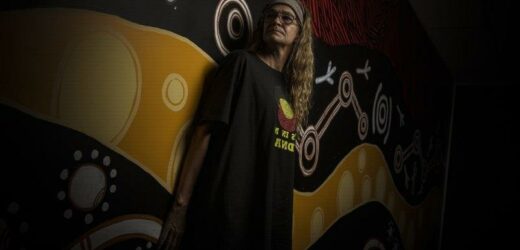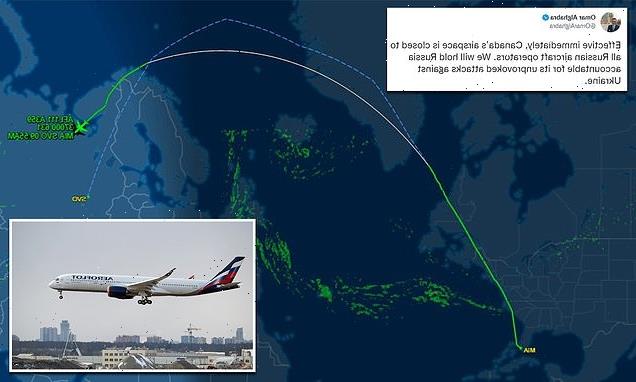Warning: distressing content.
Social worker and Wiradjuri and Noongar woman Lee-Anne Carter is seeing it more and more: Victorian Aboriginal people being arrested when suffering from serious mental distress.
Lee-Anne Carter says more support is needed to help Indigenous prisoners.Credit:Chris Hopkins
More ambulances called by police, more Aboriginal people spending longer in prison, and more self-harm.
“We started noticing an increase in people coming into the cells self-harming, indicating they’re really unwell … we were noticing Ambulance Victoria attending police stations more,” Ms Carter said.
New Justice Department statistics have revealed that, even though the population of incarcerated Aboriginal Victorians decreased, the number of incidents involving self-harm among Indigenous prisoners increased more than 50 per cent in the past year.
Ms Carter, the leader of Victorian Aboriginal Legal Service’s (VALS) justice programs, was not surprised by the data.
She recounted a recent incident when a VALS social worker made a welfare check on a prisoner, who reported they were thinking of self-harming. The social worker informed police, who, she said, replied by saying the person who had been arrested was just doing it for attention.
“They put him back in the cell. Within 15 to 20 minutes this young kid had rammed his head into the wall and busted his head open,” Ms Carter said.
“We’ve had people chewing their stitches out in the cells and laying in blood on the floor. We’ve had people that have attempted, several times, to remove their clothing and self-harm in cells.”
“We were just hearing it more and more regularly, and that’s when we actually went back and thought something’s happening here.”
Corrections Minister Natalie Hutchins.Credit:Paul Jeffers
The Victorian government has detected an increase too. Responding to a question on notice, Victorian Corrections Minister Natalie Hutchins admitted that incidents of self-harm involving Aboriginal Australians in the state’s prisons had increased 53 per cent in the past year.
According to the data, in the year to January, there were 148 incidents of Aboriginal-involved self-harm in Victorian prisons compared to 97 the year before. The number of Indigenous people in Victorian prisons dropped by nearly 10 per cent between June 2019 and June 2021.
Greens justice spokesman Dr Tim Read said the over-representation of Aboriginal people in custody was a “continuing and real problem, and this is one predictable consequence of it”.
“When we see the data it’s maddening because it’s preventable. If the Andrews government wanted to do one simple thing, they could make it easier for people committing minor offences to get bail,” he said.
A justice department spokeswoman acknowledged the “tragic and traumatic impacts self-harm and suicide have on Aboriginal families and communities”, but emphasised that the incidents recorded did not relate to the number of unique individuals, noting that one prisoner could be involved in multiple incidents.
Lee-Anne Carter has noticed an increase in self-harm and mental health distress among Victorian Aboriginal people.Credit:Chris Hopkins
“We know coming into prison can be a highly distressing and disruptive experience, potentially leading to a greater risk of self-harm. That’s why Corrections Victoria has comprehensive structures in place to help those at risk, including assessments and support from on-site mental health professionals,” the department said in a statement.
A report from the Victorian Coroner found that the state’s Indigenous suicide rate jumped by more 75 per cent in a year in 2020. In 2021, there were 35 Indigenous deaths by suicide in the state, an increase from 20 the year prior.
Earlier in February, the Victorian government pledged to spend $150 million, building more than 400 new houses to counter a decade-long surge in the number of Aboriginal people presenting as homeless.
Throughout 2021 Ms Carter’s team received 11,850 notifications to VALS’ automated system saying an Aboriginal or Torres Strait Islander-identifying person had been taken into custody. The team made 65,902 welfare calls in response, to police stations, family members, and prisons, making sure the person was OK.
She worries, though, that without the right government approach, the numbers of those that come into contact with the criminal justice system and self-harm will continue to rise.
“It’s so key to ensure that we’ve got those cultural supports and those networks that are just missing in some spaces,” she said.
“Aboriginal and community organisations are so smashed at the moment. They are really under the pump from having so many community members relying on their services, and they’re not funded or resourced properly.”
If you or anyone you know needs support call Lifeline 131 114, or Beyond Blue 1300 224 636.
Our Breaking News Alert will notify you of significant breaking news when it happens. Get it here.
Most Viewed in National
From our partners
Source: Read Full Article





